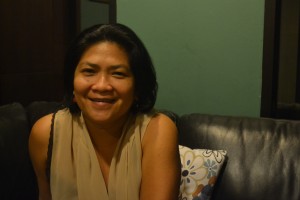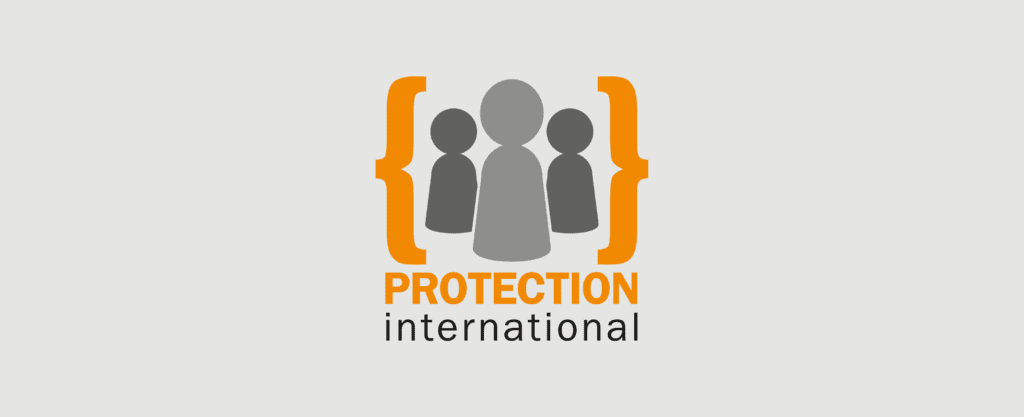
PI: Can you tell us a bit about how you have become a woman human rights defender?
MJR: Well, I´ve been active in defense of human rights and women´s rights since I was a student. The more I became aware of how gender inequality impacted my personal and professional life, the more I became involved in women’s rights issues. Around 2005, I started working with women human rights defenders (WHRDs). I was also working with many WHRDs before but only became familiar with the term then.
At the time, Hina Jilani held her post as UN Special Rapporteur on the situation of human rights defenders. She helped to create the Women Human Rights Defenders International Coalition (WHRD IC) of which I became the coordinator. That’s how I formally transitioned into a WHRD.
You can call yourself any name, but I personally find it strategic to call myself a defender. Rather than talk about human rights in relation to people you advocate for or the communities you work with, the term ‘defender’ acknowledges that as an activist you also have rights that you can claim and assert. I believe that’s critical, especially in the face of political repression and other challenges that are faced by defenders.
“The term defender acknowledges that as an activist you also have rights that you can claim and assert for.”
PI: What is the added value of having the word ‘woman’ in the term ‘woman human rights defender’?
MJR: I think, for myself, it’s important to claim that label. Gender inequality is structural and therefore, even within the human rights movement, you cannot take it for granted that women’s rights are already implicated in the term ‘human rights defender.’
One major challenge for WHRDs is dealing with a lack of recognition. Even if women hold leadership positions, they still struggle to be acknowledged in the public space as critical actors. Linked to this lack of recognition is the issue of the protection that you need to do your work. To be acknowledged as a defender implies that you deserve protection and support. Unless a woman defender is recognized as a legitimate activist and defender of human rights, protection and support will always be one step remote from the risks that she faces. So, to add the word ‘woman’ to the term ‘woman human rights defender’ helps to ensure that protection of and support for women human rights defenders is in place.
“To add the word ‘woman’ to the term ‘woman human rights defender’ helps to ensure that protection of and support for women human rights defenders is in place.”
PI: What are the main challenges that you and other women human rights defenders from the Philippines have to deal with?
MJR: The Philippines is still a predominantly Catholic country with a government that is toeing the line of the Catholic Church. One of the main issues that women human rights defenders are working on in the country is the issue of reproductive rights.
If a country would value reproductive rights as part of women’s rights, there would not be a pressing need for WHRDs to work on the issue. However, today we still see stigmatization and defamation (for example, publicly calling these women bad mothers and many other defamatory labels to try to ruin their reputation) as two common violations of the rights of WHRDs in the Philippines due to resistance from the Catholic Church.
I have noticed that the level of threats received by women defenders in the Philippines is not as high in, say, Latin America. The risks might not be as alarming as being arrested or getting killed. As a consequence, the public doesn’t realize that what happens in the Philippines are actually human rights violations and that the issue needs to be addressed.
LM: How should this issue be addressed?
MJR: Well, one consideration in addressing the violations of the rights of women defenders should be the psychological implications. The psychological impact of these violations is not picked up in any of the urgent appeals or other documentation. Yet, if you talk to these women, they often talk about being burned out, about desperately trying to see family, about their struggle to balance their personal life and their wish to defend their rights. These psychological implications are not addressed at all.
PI: What would different forms of protection include?
MJR: Firstly, we cannot say that one can only be a human rights defender when they’re at risk. Secondly, when we respond to their risk, we can’t just focus on physical forms of risks and threats. The psychological aspects have just as much of an impact on the defenders and we need to respond to this aspect as well.
I think a better form of protection would look at all these different aspects of risks, physical and psychological, reactive and preventive, and protection for the short and the long term. For many of the women defenders, this also means protection for their families. In their case, often they’re expected to take care of the children.
“I think a better form of protection would look at all these different aspects of risks, physical and psychological, reactive and preventive, and protection for the short and the long term.”
PI: Do you think there is a role for the government in protection of women human rights defenders? Through a public policy, for example?
MJR: Definitely, but I also think there is still a long way to go before we get there, particularly in Southeast Asia. The ASEAN Intergovernmental Commission on Human Rights (AICHR) is more focused on the promotion of human rights than on the protection of human rights. This translates into a policy of non-intervention among member states.
It is therefore not surprising that the AICHR has not issued any statement on human rights issues involving states and that they have been reluctant to develop protection and redress mechanisms for human rights violations. As an intergovernmental body, AICHR reflects the human rights culture of the governments in Southeast Asia. That culture is not yet as robust and vibrant as in countries in Europe. There is an important role for civil society to advocate for governments to make protection part of state accountability.
PI: Is there anything that you would like to see changed for the next-generation defenders?
MJR: I wouldn’t want the next generation to experience the same level of inequality that I have experienced in my lifetime, and my mother has experienced in her lifetime. I don’t want them to inherit those forms of discrimination and be apologetic about the fact that they are women defending human rights. I want them to be proud of the fact that they defend human rights and claim that space as a woman human rights defender.


